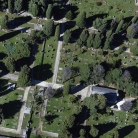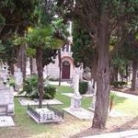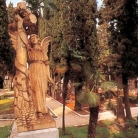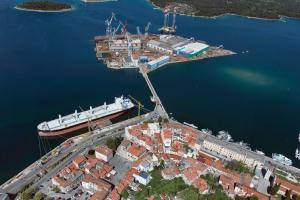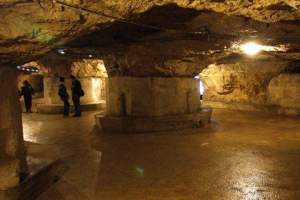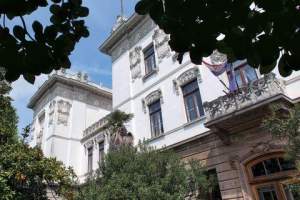The Navy Cemetery
With the growth of Pula during the Austro-Hungarian Monarchy, grew the number of its inhabitants as well. Consequently, numerous public and private structures were erected in the period, including the Navy Cemetery. It was opened in 1862 under its full name K. u. k. Marinefriedhof or the Empire and Royal Navy Cemetery, the name given to all Monarchy's public institutions. The Ministry of the Navy bought four thousand square meters of land for the cemetery needs. Until 1870, the deceased were buried in groups. This practice consequently got changed for hygienic reasons. Until today about 150,000 people have been buried on its 22,000 m2. The Navy Cemetery is the last resting place of those who were killed on the Baron Gautsch steamship during the WW1, a few Austro-Hungarian as well as one Turkish admiral, and the WW2 victims.
The cemetery has maintained its urban architectural form and monument heritage. Under the 1960 Decision, it was declared historical monument heritage. From then on, no new burials have been conducted. In light of its worn-out condition and the dilapidated state, the renovation of the Navy Cemetery started in 1990 aided by the Austrian Red Cross and the German People's Association for War Graves. In May 1997, the renovation was completed, and the cemetery was listed as one of the monuments protected under the Hague Convention.
Stoja 11, HR-52100 Pula-Pola













